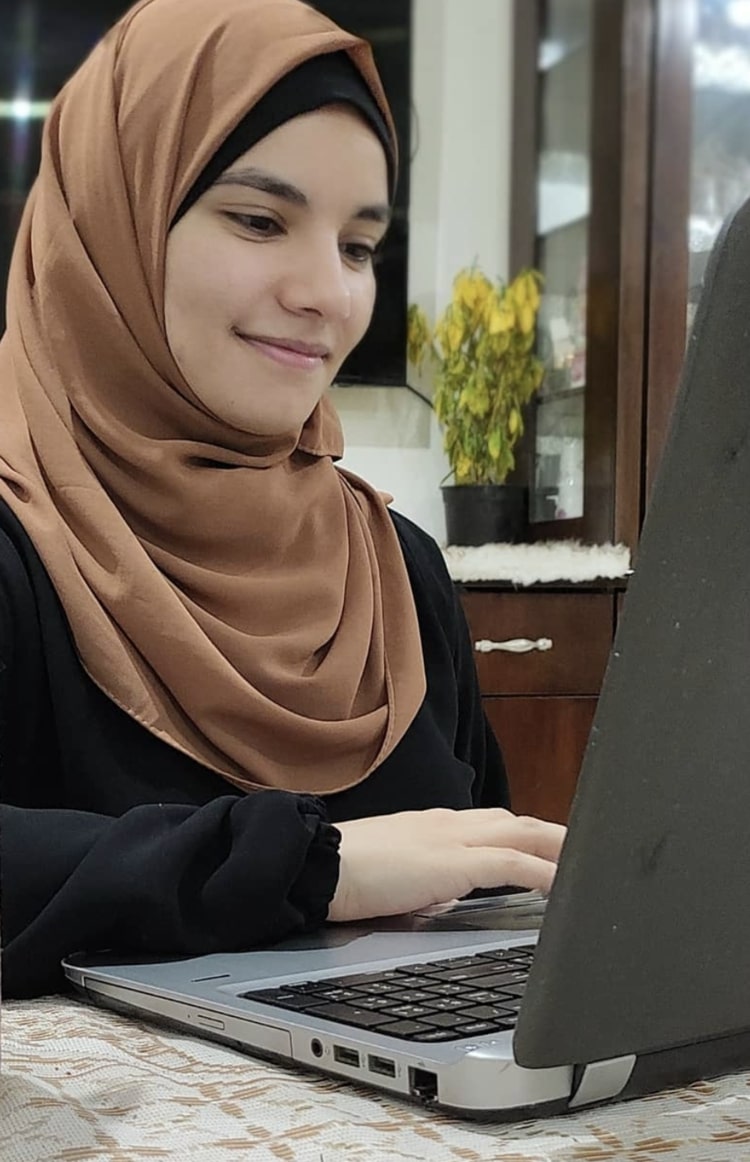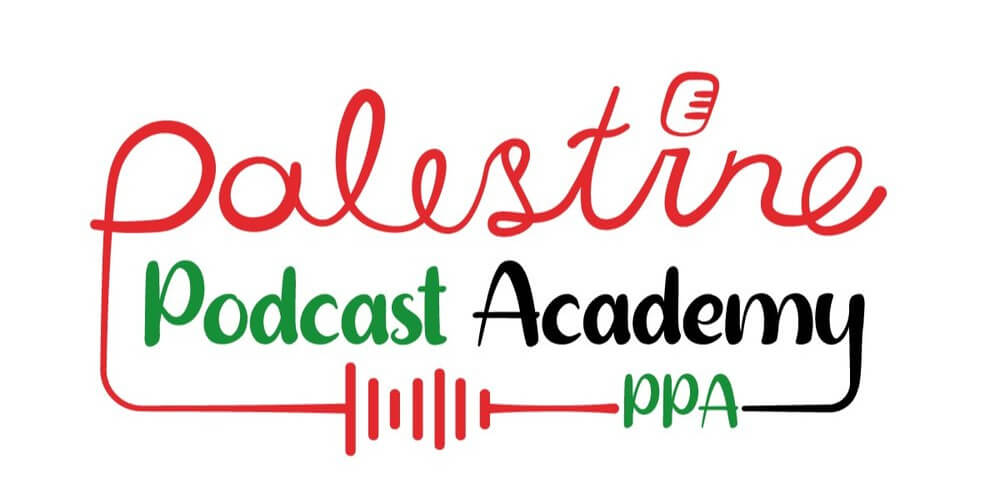Passing the mic to Palestinians
The Palestine Podcast Academy gives independent voices a chance to be heard amid the media babble.
Palestine gets an extraordinary amount of media coverage but the voices of ordinary Palestinians rarely comes through. If Palestinians are given a chance to talk, it is often confined to short sound bites on news reports, and invariably more in Arabic news than English-language news, unless there is another intifada (uprising) or Israeli bombardment underway.
To give Palestinians the chance to not only be heard but to also create their own media content, the Latitude Adjustment Podcast, part of Netherlands-based non-profit Stichting Open Roads Media, created the Palestine Podcast Academy, a first of its kind in Palestine.
In November, the project graduated its first two classes of podcasters - 18 women and two men from Gaza, East Jerusalem, and across the West Bank – following two three-week intensive courses.
The Palestine Podcast Academy is the brainchild of Eric Maddox, who has his own podcast, Latitude Adjustment. “Its purpose is to highlight under-reported issues and places around the world,” he said.
In early 2021, Maddox went to the Greek island of Lesbos to provide podcast training to asylum seekers, primarily Afghanis and one Burundian. “That was the first attempt at this podcast-training concept, to create a platform for other people to speak but also to create the tools for others to have their own platforms,” he said.
As Palestinians were often interviewed on his podcast show, and the Palestinan cause ‘close to his heart’, Maddox wanted to help train Palestinians.
“The idea is to pass the mic to Palestine, to get them the tools they need to tell the world what their lived reality is. Podcasting allows you to get around a lot of institutional barriers, and a lot of latitude, that other media doesn’t, and anyone can do it,” he said.
Aside from the written word, podcasts are a particularly cost effective way to get views out to the wider world.
“If you can access a decent microphone - which is not easy in Palestine, and one of several areas where we need financial and logistical support help – access to the internet, and to a laptop, you can reach the world on a pretty modest budget,” said Maddox. “And you don’t necessarily need as much technical training or funding budget as for video training and productions. Audio editing is very different from video editing, which needed months of lead time and fundraising to execute a few projects a year, whereas with podcasting it’s far easier to execute, and with fewer resources. The return on investment can be very high, and the demand is there to suggest that the investment is worth it.”
Following the application process, which far exceeded their initial capacities, the academy trained two batches of participants from around Palestine. “We could have just picked a part of Palestine, and from a logistical standpoint it is easier to do that, to focus on the West Bank or East Jerusalem, but we decided that would be duplicating the apartheid conditions Palestinians are already living under. Our process should be an act of resistance unto itself, and should unify Palestine in the way we teach them how to make their own content,” he said.
Further motivation was to connect Palestinians in the different parts of the territories. “There is this misperception that as we have the internet people can connect easily, but it doesn’t necessarily mean that Gazans are talking with people in the West Bank, and vice versa. What I learned from my conversations with Palestinians was that ou kind of need an excuse to interact. Sure there might be a sense of solidarity among Palestinians, but at an individual level there needs to be a catalyst for people to connect,” he said.
Training was carried out virtually, and then teams of two participants in different areas were created. Each would tell their story. “In some cases, one participant would answer a question in relation to where they are in Palestine, covering topics such as "freedom of movement". A Gazan will give a different answer to someone from Bethlehem,” said Maddox.
Some of the final projects covered topics such as "Growing Up Under Occupation", "The Personal Economics of Apartheid", and ‘Staying Connected to Palestine in the Diaspora’.

Aseel Ghaben, from Al Bureij Camp in Gaza, edits her audio segments for the Palestine Podcast Academy.
The academy partnered with the Birzeit University Media Development Centre, We Are Not Numbers, Right to Movement, and JEST Hub in east Jerusalem to recruit and participate in the academies. An all-female led facilitator team enabled participants to overcome certain obstacles, such as getting hold of a microphone. Beirzeit University provided access to its recording studio in Ramallah, although access was limited due to the freedom of movement restrictions Palestinians face.
“Where we need help going forward is in creating spaces and offering equipment to our participants. It is not easy for someone from Nablus to get to Ramallah, even if something is available in the West Bank,” said Maddox.
The podcast graduates have started a six-month mentorship period to help them launch their own shows. “Our goal is to continue offering these academies across Palestine, and to employ more Palestinian facilitators and teachers, while teaching our graduates how to monetise their individual podcasts,” he said.
"Our organisation has plans for how to continue to grow the programme, but to be sustainable and free from outside influences, it will require the support of institutions and individuals who are prepared to allow Palestinian voices to be heard with full independence. Only then can we truly pass the mic to Palestine, ” he added.
Episodes can be found on the Latitude Adjustment website, Apple Podcasts, and Spotify. All shows are published in both English and in Arabic.
© SalaamGateway.com 2021 All Rights Reserved
